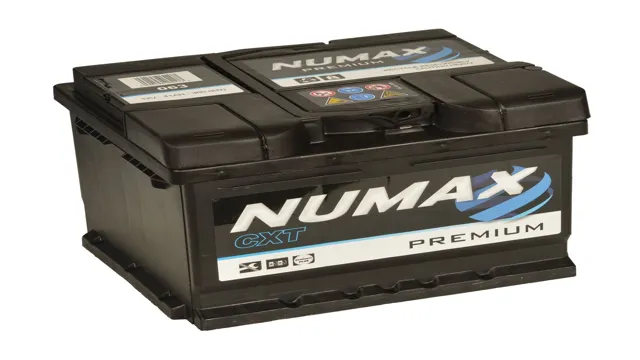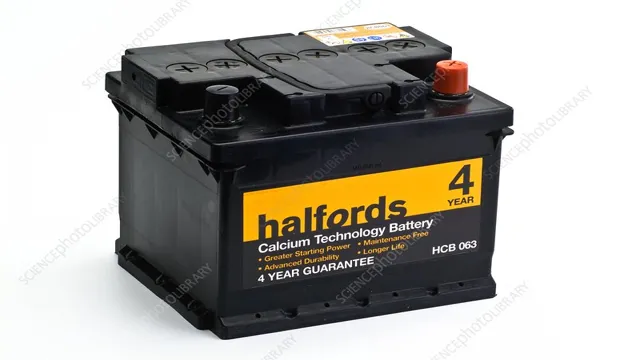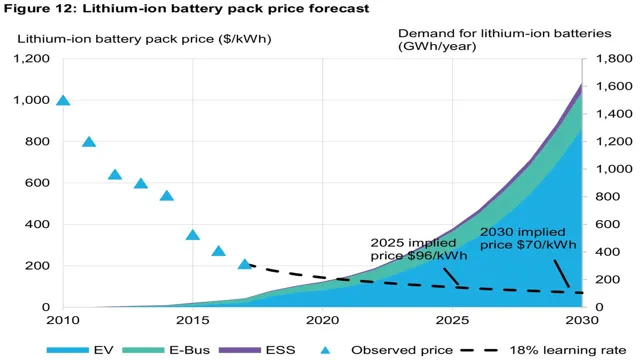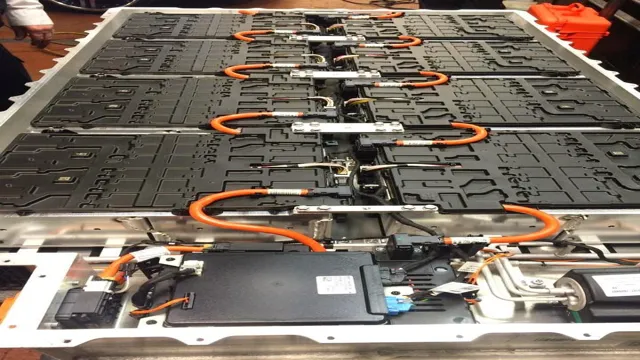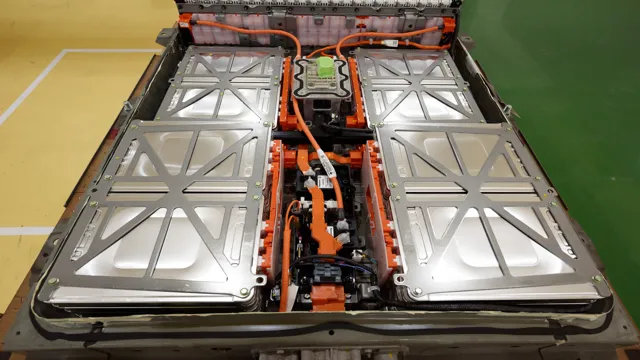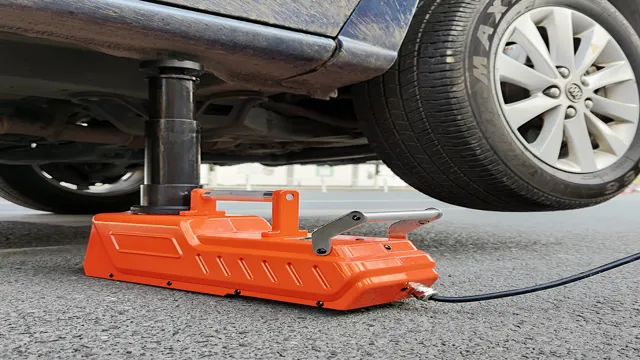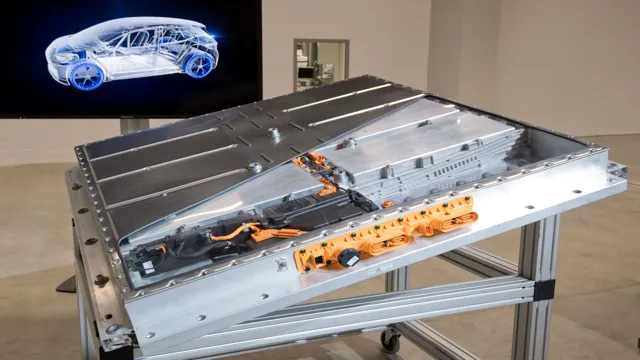The Heartbeat of Electric Cars: Exploring the Power of 12v Batteries
When we think of electric cars, we tend to focus on their sleek designs, zero-emissions, and impressive range. However, we often overlook one of the most important components that makes electric cars possible – the 12V battery. This small yet mighty battery plays a critical role in the operation and functionality of electric cars.
Unlike traditional gas-powered vehicles, electric cars rely on a high voltage battery pack to power the electric motor. However, they still require a 12V battery to power the car’s auxiliary systems, such as the lights, stereo, and power windows. While these systems may not directly impact the car’s ability to drive, they are essential components that contribute to the overall driving experience.
The 12V battery also serves as a backup power source in the event of a malfunction in the car’s high voltage battery. In this scenario, the 12V battery provides enough power to safely bring the car to a stop and activate the car’s emergency systems. Overall, the 12V battery may seem like a small piece of the puzzle compared to the larger, high voltage battery pack.
However, its importance in ensuring the smooth and safe operation of electric cars cannot be overstated. So next time you’re admiring the sleek exterior of an electric car, take a moment to appreciate the role of the humble 12V battery hidden away under the hood.
What is a 12V Battery?
A 12V battery is a small, rechargeable battery that provides electrical power to a variety of different applications, including electric cars. Although it may seem small in comparison to the massive battery system that powers an electric car, the 12V battery is responsible for keeping important systems like the lights and radio running smoothly. In many cases, the 12V battery in an electric car is used to power the vehicle’s auxiliary systems, which means that it is separate from the main high-voltage battery pack that drives the car itself.
When shopping for a replacement 12V battery for your electric car, it’s important to look for one that has been specifically designed for use in an electric vehicle and that can handle the power demands of your particular make and model.
Basic explanation of 12V battery function
A 12V battery is a common type of lead-acid battery used in a variety of applications, from automobiles to backup power supplies. It works by storing electrical energy in chemical form, which can then be converted into electrical energy when needed. The battery has six cells, each containing lead plates submerged in an electrolyte solution.
When a load is connected to the battery, chemical reactions occur at the plates, producing electrons that flow through the load and create a potential difference. The voltage of the battery depends on the number of cells, with each cell producing around 2V. The battery can be recharged by applying an external voltage that reverses the chemical reactions, restoring the energy to the cells.
Modern 12V batteries are designed to be maintenance-free, with sealed cells that do not require topping up with water. Overall, a 12V battery provides a reliable and cost-effective source of energy for a wide range of applications, making it an essential component in many electrical systems.

Why Do Electric Cars Need 12V Batteries?
If you’re new to electric cars, you might be wondering why these vehicles still require a 12V battery when their primary power source is an electric motor or a battery pack. The answer lies in the fact that these batteries play a critical role in ensuring that the car’s auxiliary systems are always operational, even when the bigger battery is depleted. These auxiliary systems include the lights, audio system, climate control, and even the safety features such as the airbags and the electronic stability control.
Although these systems consume less power than the main motor, they still require a stable and reliable source of electricity, which is precisely what the 12V battery provides. In essence, the 12V battery serves as a backup power source that ensures that the car remains safe and functional in case the main battery fails. Without a 12V battery, electric cars wouldn’t be as versatile and dependable as they are today, despite their many benefits, such as lower emissions and cheaper maintenance costs.
Requirements of 12V battery in electrical systems
Electric cars require 12V batteries to power their electrical systems, just like traditional gas-powered cars. However, the function of the 12V battery in an electric car is different from that of a gas-powered car. In an electric car, the 12V battery is responsible for powering the auxiliary systems such as the lights, windshield wipers, and infotainment system.
It also helps to start the electric motor that powers the car’s wheels. Additionally, the 12V battery helps to regulate the power in the high-voltage battery pack, which is responsible for powering the electric motor. Without the 12V battery, electric cars would not operate even though they rely heavily on their high-voltage battery packs for propulsion.
So, while the 12V battery in an electric car may not be as critical as it is in a gas-powered car, it is still an essential component that ensures the vehicle operates smoothly and efficiently.
Challenges of the 12V Battery
The 12V battery in electric cars can often present challenges for drivers. While the car’s high-voltage battery powers the electric motor, the 12V battery is responsible for running the car’s accessories, such as the lights, radio, and air conditioning. This battery can quickly drain if the car is left on for too long with these accessories running, leaving the driver stranded.
Additionally, the 12V battery’s lifespan is typically shorter than the high-voltage battery and may need replacing more frequently. It’s important for drivers to be aware of the challenges that the 12V battery can present and to monitor its health regularly, as a failing battery can lead to a breakdown on the road. However, with proper maintenance and care, the 12V battery can continue to provide reliable performance in electric cars.
Problem of battery drain when car is not in use and how to avoid it
One of the biggest challenges that come with owning a car is dealing with its battery, especially when the vehicle is not in regular use. If a car sits unused for an extended period, its battery can lose charge and eventually go dead. This can be caused by a range of things such as age, temperature changes, and parasitic loads.
However, there are a few things you can do to avoid this problem. One way is to invest in a trickle charger that can maintain the battery’s charge levels even when the car is not in use. Another option is to disconnect the battery completely, especially if you’re going to be away from the car for an extended time.
It’s important to note that these methods only work for the 12V battery and not the high-voltage battery commonly used in hybrid and electric cars. As a car owner, you must stay on top of your vehicle’s battery’s health to ensure it runs smoothly, and you don’t end up stranded on the side of the road. One way to maintain the 12V battery’s health is to drive the car regularly, as the battery gets charged when driving.
In instances where you can’t drive the vehicle, keeping it parked in a garage or under a covering can protect it from weather elements, which can cause the battery to degrade. Additionally, turning off all electronic devices and unplugging any phones or tablets that may be charging in the car can help reduce parasitic loads. If you do experience a dead battery, it’s important to get it tested to determine the cause and prevent the issue from repeating.
In conclusion, car battery drain when out of use is a common problem, but there are ways to overcome it. Investing in a trickle charger or disconnecting the battery entirely are both excellent ways to ensure that your car’s battery remains charged even when the vehicle is not in use. Additionally, driving your car regularly, parking it inside a garage or under cover, and reducing parasitic loads can all help prolong battery life.
Lastly, remember to have your battery tested regularly and replace it when necessary to minimize the likelihood of unexpected battery failure.
Battery life concerns and how to increase it
If you’re someone who relies on a 12V battery for power, you’re likely familiar with the challenges it can present. One of the main concerns with these batteries is their limited lifespan and the fact that they can drain quickly. This can be especially frustrating if you’re relying on your battery to power important equipment or devices.
The good news is that there are things you can do to increase the lifespan of your battery and get more juice out of each charge. For starters, make sure you’re properly maintaining your battery by keeping it clean and checking for any signs of damage. It’s also important to avoid overcharging your battery, as this can cause it to wear out faster.
Finally, consider investing in a high-quality charger that’s designed specifically for your battery, as this can help ensure that it’s charging at the optimal rate. By taking these steps, you can help extend the life of your 12V battery and avoid any potential power-related headaches.
Maintenance of 12V Battery
Maintaining a 12V battery in an electric car is crucial for ensuring that your vehicle runs smoothly. This type of battery is responsible for powering various components such as your car’s headlights, radio, and interior lights. One key thing to keep in mind is to avoid over-discharging the 12V battery.
This can happen if you leave your car’s doors open for an extended period of time without the engine running, or if you forget to turn off your headlights. Continuously over-discharging the battery can cause irreversible damage, which can ultimately lead to a shorter lifespan for the battery. Another important maintenance tip is to regularly check the battery’s voltage levels.
This can be done using a voltmeter, which is an affordable and easy-to-use tool. If you notice that the voltage levels in your battery are consistently low, it may be time to replace it with a new one. By taking these steps, you can ensure that your 12V battery functions optimally and keeps your electric car running smoothly on the road.
Tips on how to maintain the health of your 12V car battery
Maintaining a healthy 12V car battery is essential to ensure your car runs smoothly. One of the simplest ways to keep your battery in good health is by keeping it clean. Check for any visible buildup of dirt or corrosion on the battery terminals regularly and use a mixture of baking soda and water to clean it off.
It’s best to keep the terminals dry, so avoid using too much water. Another tip is to keep your battery fully charged all the time. When you are not using your car, it’s recommended to disconnect the battery or use a trickle charger to keep the battery fully charged.
This can help avoid sulfation and keep the lead plates in good condition. Additionally, regularly check the battery’s fluid levels and top it up if needed. A battery with low fluid levels can become easily damaged, especially during hot weather.
Finally, ensure that your car’s alternator is functioning correctly, as an issue with it can lead to the battery not charging correctly, resulting in early battery failure. By following these simple tips and regularly maintaining your 12V battery, you can enjoy a longer-lasting battery and avoid any unexpected breakdowns.
Conclusion
In conclusion, the 12v battery in an electric car may seem small and insignificant compared to the massive battery pack that powers the motor, but it plays a crucial role in keeping the car’s electrical systems running smoothly. Without it, you wouldn’t be able to start the car, turn on the lights, or even roll down the windows. So while it may not be the star of the show, the 12v battery deserves its moment in the spotlight for being the unsung hero of electric cars.
Plus, it’s always reassuring to know that even the smallest of components can make a big impact.”
FAQs
What is the role of a 12v battery in an electric car?
The 12v battery in an electric car is responsible for powering the various electrical components that do not require high voltage, such as lights, radio, and air conditioning.
How does the 12v battery get recharged in an electric car?
The 12v battery in an electric car is typically recharged by the high voltage battery pack through a DC-DC converter. Alternatively, some electric cars may use a separate charging system for the 12v battery.
What happens if the 12v battery dies in an electric car?
If the 12v battery dies in an electric car, the vehicle may not start or some of the electrical components may not function properly. It is important to regularly check the status of the 12v battery and replace it if necessary.
Can a regular car battery be used as a replacement for the 12v battery in an electric car?
No, a regular car battery cannot be used as a replacement for the 12v battery in an electric car. The 12v battery in an electric car is designed to handle the unique demands and charging characteristics of the vehicle’s electrical system. Using a regular car battery can potentially damage the system and void the warranty.
